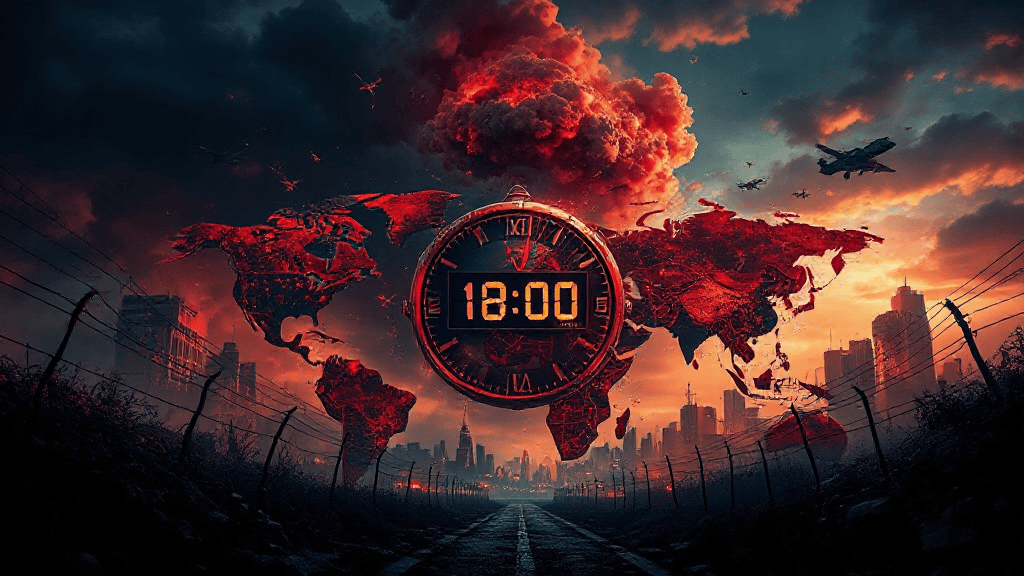When I think about how our world feels right now—like a game of chess where one player is reckless and the other is timid—my mind is transported to war rooms where decisions can shift the balance of power at a moment’s notice.
Enter Vladimir Putin: a wild card who, much like a pouncing tiger, is testing the waters of our global resolve.
With security expert Anthony Gleese laying down the stark reality of this situation, it’s time for a wake-up call.
The Rising Tide of Russian Aggression
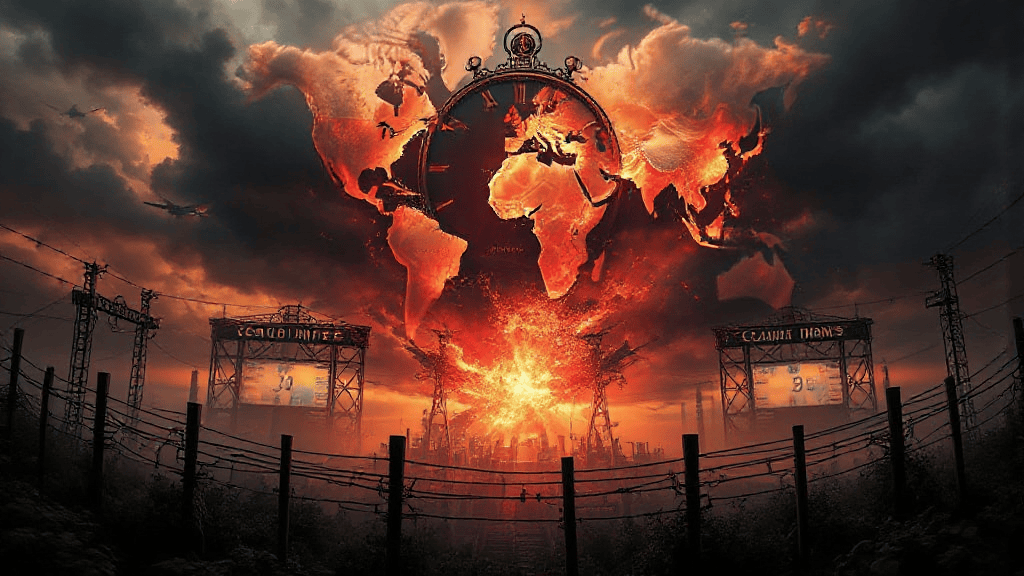
Are we really okay with being left in the dust while our rivals zoom past? It’s a question that keeps echoing in my mind as we watch the unfolding drama of Russian aggression under Vladimir Putin.
This isn’t just a casual stroll in the park; it’s a full-blown test of NATO’s resolve.
And trust me, the stakes are higher than ever.
Putin’s Tactics: Testing NATO’s Resolve
Let’s get real.
Putin isn’t just flexing his muscles for fun.
He’s testing NATO to see at what point we’ll say,
“enough is enough.”
This isn’t a game of chess; it’s a high-stakes poker match.
Every move he makes is calculated.
Each military posturing incident is a loud wake-up call that we can’t afford to ignore.
In the past few months, we’ve seen some alarming incidents, especially in the Baltic region.
These aren’t mere accidents.
They’re warning signs.
Think of them as the canary in the coal mine, signaling that something is terribly wrong.
The Russians are acting like they own the place, and if we don’t respond, we might as well roll over and play dead.
Incidents in the Baltic Region: Warning Signs
- Recent military maneuvers that are anything but accidental.
- Cyber attacks that disrupt critical infrastructure.
- Increased naval activity in international waters.
These actions are not isolated.
They’re part of a broader strategy that has roots in historical patterns of Russian aggression.
Just look back at history.
The Molotov-Ribbentrop Pact? That wasn’t just a footnote; it was a precursor to chaos.
Putin’s playbook seems to echo this past, and if we don’t take notice, we could be facing a repeat performance.
Linking Russian Actions to Historical Patterns
Now, I know what you might be thinking: “Oh, here we go again, another doom-and-gloom scenario.” But let’s not kid ourselves.
The nature of Putin’s governance is authoritarian, and it bears striking similarities to past regimes that led us into conflict.
We’ve got to connect the dots.
Ignoring this is like trying to text on a typewriter—utterly ridiculous.
As we analyze these incidents, we must also examine NATO’s sluggish responses.
Why are we dragging our feet? Is it fear? Complacency? Or just plain old bureaucratic inertia? Whatever it is, it’s costing us dearly.
Our competition is laughing at our old-school ways, and we’re hemorrhaging resources while sleepwalking through this crisis.
Look, I’m not saying we need to jump into a full-blown war.
But we can’t afford to sit back and let Putin dictate the terms.
His intentions are transparent.
He’s not just poking the bear; he’s trying to remove NATO’s military presence from Eastern Europe.
If we allow this to happen, we’re dismantling the security framework built since the post-Cold War era.
As Professor Anthony Gleese pointed out, the future could be exceedingly grim if we don’t recognize Putin as a genuine threat.
We need strong leadership to deter him and uphold the principles that guide NATO and European alliances.
Saying “no” to aggressive moves is critical.
So, what’s the takeaway here? The Russians are entirely reckless.
They’re testing us.
And if we don’t wake up soon, we might just find ourselves in a situation we can’t escape from.
The Historical Lens: Lessons from the Past
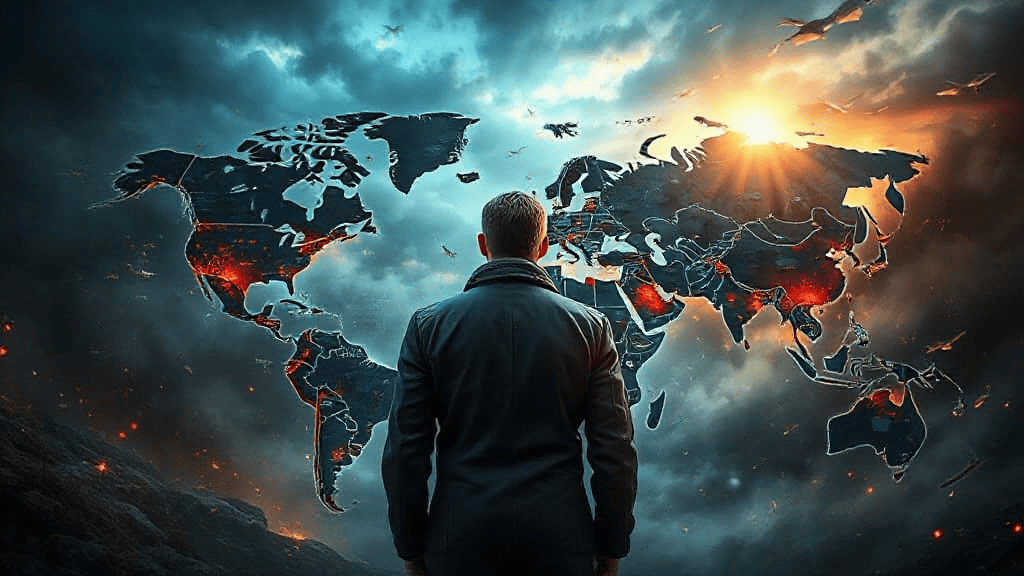
Are you really okay with being left in the dust while your rivals zoom past? It’s a question we should all ponder.
History is a relentless teacher.
It has a way of repeating itself, especially when we ignore the lessons it offers.
Take a moment to think about the failure of appeasement strategies.
They sound good in theory, but in practice? They’re about as effective as a screen door on a submarine.
The Failure of Appeasement Strategies
Appeasement has a long and ugly history.
Remember the lead-up to World War II? The world watched as Hitler marched into neighboring countries, and what did the leaders do? They sat on their hands, hoping he would stop.
Spoiler alert: he didn’t.
The strategy of giving in to demands only emboldened aggressors.
It’s a classic case of “let’s just hope they get tired.” But guess what? They never do.
- Appeasement is often rooted in fear. Leaders worry about the consequences of confrontation.
- It can create a false sense of security, leading to greater conflicts down the line.
- Ignoring the aggressive actions of a dictator only invites more aggression.
So, what does this mean for us today? With Putin’s actions in Ukraine and beyond, we’re facing a similar situation.
If we ignore his maneuvers, history might just repeat itself.
And trust me, nobody wants that.
Reagan’s Approach: A Case Study
Now, let’s pivot to a different approach.
Ronald Reagan.
Love him or hate him, his strategy against the Soviet Union was clear and decisive.
He didn’t cower in fear.
Instead, he ramped up military spending and strengthened NATO.
His administration understood that weakness invites aggression.
“Peace through strength” was not just a catchy slogan; it was a philosophy.
Reagan’s tough stance pushed back against Soviet expansion.
He understood that a show of force could deter aggression.
It’s a lesson we need to remember today.
If we want to avoid the mistakes of the past, we must adopt a similar posture.
We can’t afford to be complacent.
The stakes are too high.
The Consequences of Ignoring Past Aggressions
What happens when we ignore history? It’s like trying to text on a typewriter—completely ineffective.
Gleese pointed out that we risk undermining our own security.
If we let Putin’s actions slide, we’re not just inviting trouble; we’re rolling out the red carpet for it.
- Ignoring aggression can lead to larger conflicts. Just look at World War II.
- It can embolden other dictators, creating a domino effect of instability.
- History teaches us that unchecked aggression leads to dire consequences.
Putin has studied history very carefully.
He remembers what turned the last European war.
He knows that if he pushes hard enough, he might just get what he wants.
And that’s a dangerous game.
We need to learn from the past.
We need to act decisively.
In the end, the lessons are clear.
History is not just a series of events; it’s a guidebook.
It tells us what to do—and what not to do.
As we navigate the complex geopolitical landscape today, let’s keep our eyes wide open.
Let’s not make the same mistakes that led to the horrors of the past.
The time for action is now.
Understanding the Dynamics of Democracy and Authoritarianism
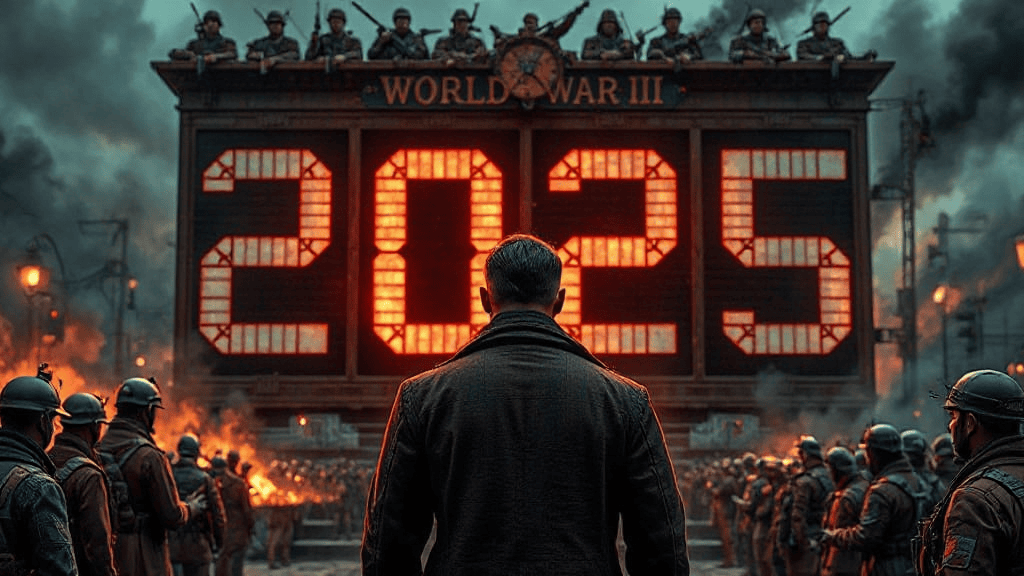
Are we really okay with being left in the dust while our rivals zoom past? The world is a stage, and the actors are either democracies or authoritarian regimes.
Each has its own script.
But what happens when the lines blur? When democracy, that shining beacon of hope, hesitates to act? It’s a double-edged sword, and we need to dissect this complex issue.
Democracy’s Aversion to War: A Double-Edged Sword
Democracies generally shy away from conflict.
This aversion can be noble.
After all, who wants to send young men and women into harm’s way? But let’s be real: this reluctance can also be a liability.
It’s like trying to play chess with one hand tied behind your back.
You’re not just losing; you’re inviting disaster.
- Historical Context: Democracies have never waged war on other democracies. Think about that for a moment. It’s a powerful statement about our collective values.
- Wartime Decision-Making: The unique challenges democracies face in wartime are daunting. We need to consider public opinion, political ramifications, and the moral implications of our actions. This can lead to paralysis at a time when decisive action is essential.
In the words of Professor Anthony Gleese, “letting Putin act unchecked would ultimately undermine Western countries’ autonomy.” It’s a wake-up call.
If we don’t confront authoritarian regimes like Russia, we risk losing our very essence as democratic nations.
Are we willing to let that happen?
Putin’s Manipulation of Democratic Frameworks
Now, let’s turn our gaze to the Kremlin.
Vladimir Putin is not just a player on the global stage; he’s the puppeteer pulling the strings.
His manipulation of democratic frameworks is a masterclass in deception.
He understands that democracies are bound by their principles, which he exploits to his advantage.
Consider this: Putin uses democratic rhetoric to justify his actions while simultaneously undermining democratic institutions within Russia.
It’s like trying to text on a typewriter—utterly absurd.
He uses the guise of democracy to mask authoritarianism.
This is not just a political strategy; it’s a calculated move to destabilize the West.
Gleese warns that if NATO and European powers do not recognize Putin as a genuine threat, the future could be exceedingly grim.
This isn’t just theory; it’s a reality we must face.
We have to ask ourselves: how long can we afford to ignore the signs?
Our Reluctance to Confront Authoritarian Regimes
Let’s face it: there’s a palpable reluctance to confront authoritarian regimes.
We’re like deer caught in headlights, frozen by fear of escalation.
But this passivity is dangerous.
It’s like ignoring a leaking roof until your house collapses.
We can’t afford to be complacent.
- Historical Parallels: Gleese draws parallels with Nazi Germany. Just as democracies hesitated in the face of Hitler’s aggression, we are now at a crossroads with Putin.
- The Need for Strong Leadership: We need leaders who are willing to say ‘no’ to aggression. It’s not just about military might; it’s about the moral obligation to uphold democratic values.
So, what’s the takeaway here? Democracies must evolve.
We can’t let our aversion to war become a weakness.
We need to challenge our own beliefs and take a stand against authoritarianism.
The stakes are too high, and the consequences of inaction could be catastrophic.
As we navigate this treacherous landscape, I urge you to consider your stance.
Are you ready to confront the uncomfortable truths? Because if we don’t, we’re merely spectators in a game where the rules are being rewritten by those who don’t play fair.
The Role of NATO and the Future of European Security
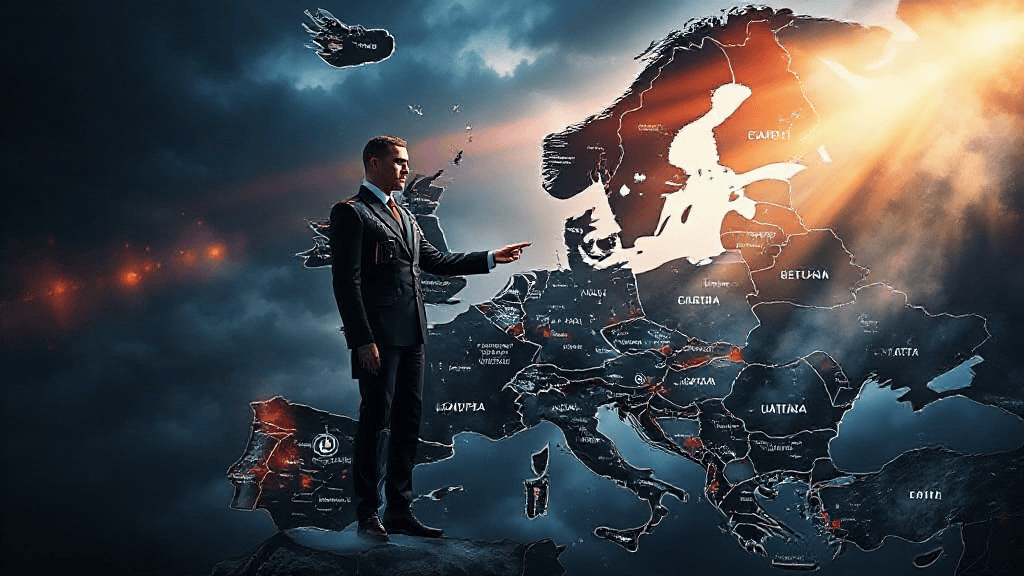
Are you really okay with being left in the dust while your rivals zoom past? It’s time for NATO leaders to wake up and smell the coffee.
The geopolitical landscape is shifting beneath our feet, and if we don’t act, we might find ourselves in a very precarious situation.
The threat from Russia under Vladimir Putin is not just a rumor; it’s a reality we must confront head-on.
Call to Action for NATO Leaders
NATO leaders need to step up.
It’s not just about meetings and discussions anymore.
It’s about decisive action.
We can’t afford to sit back while Putin tests our resolve.
Every day we delay is another day he feels emboldened.
What will it take for us to take this seriously? A wake-up call? Or perhaps a full-blown crisis?
- Recognize the threat: Putin is not playing games. His military provocations, especially in the Baltic region, are deliberate tests of NATO’s resolve.
- Adopt a tough stance: Like Ronald Reagan did during the Cold War, we need to show strength. The only way to avoid World War Three is to deter him.
- Unite our forces: We must present a united front. Division among member states only serves to weaken our position.
The Importance of Deterrence
Deterrence isn’t just a buzzword; it’s a strategy that has worked in the past.
Think of it as a shield.
If we show that we are ready to respond robustly to any aggression, we might just prevent it.
But how do we do that? Here are some practical steps:
- Increase military presence: Reinforce NATO’s eastern flank. Show that we are serious about defending our member states.
- Strengthen alliances: Work closely with European partners. Strength in numbers is vital.
- Communicate clearly: Send unambiguous messages to Moscow. Our response has got to be tough. We need to resolve and say to Putin, no.
Potential Scenarios if NATO Fails to Act
Let’s get real.
What happens if NATO fails to act? The implications are dire.
We could see a repeat of history, where unchecked aggression leads to conflict.
Here are a few scenarios:
- Loss of member states: If NATO doesn’t protect its Eastern European allies, we risk losing them to Russian influence.
- Escalation of conflict: A lack of action could embolden Russia, leading to more aggressive moves, possibly even military confrontation.
- Global instability: If Europe falls into chaos, the ripple effects will be felt worldwide. We’re not just talking about Europe’s security; we’re talking about global peace.
It’s time to stop pretending that everything is fine.
The stakes are too high.
We’re hemorrhaging resources while sleepwalking into a potential disaster.
The question is, are we going to let this happen? Or will we take control and put a stop to it?
In the words of Professor Anthony Gleese, “The only way to avoid World War Three is to deter him.” Let’s heed that warning before it’s too late.
The future of European security depends on our actions today.
The Future: Preparing for Tomorrow’s Geopolitical Landscape

Are you really okay with being left in the dust while your rivals zoom past? The current geopolitical landscape is not just a chess game; it’s a high-stakes poker match where the stakes are our very security.
With the specter of Donald Trump possibly reentering the Oval Office, we need to consider what that could mean for our foreign policy, especially regarding Russia.
Let’s dive into what’s at stake.
What if Trump Reenters the Oval Office?
Picture this: Trump back in power, and suddenly the dynamics shift.
His approach has always been unpredictable, and that’s where the danger lies.
Imagine a scenario where he decides to adopt a more conciliatory stance towards Putin.
What does that do to NATO? What does that do to Eastern Europe? It’s like giving a loaded gun to a toddler—absolutely reckless.
Historically, Trump has expressed admiration for authoritarian leaders.
If he returns to the Oval Office, we could see a significant shift in U.S. foreign policy.
This could embolden Putin, allowing him to act with impunity.
The consequences? A destabilized Europe and a potential military conflict that could have been avoided.
We cannot afford to be naive about this.
Are we really willing to gamble our security on a whim?
Strategies for Forming a Cohesive Response Against Putin
So, how do we respond to Putin’s aggressive maneuvers? The answer is not simple, but it’s critical.
First, we need a unified front among NATO allies.
If we don’t stand together, we might as well be handing Putin a victory on a silver platter.
Here are some strategies:
- Strengthen NATO’s Eastern Flank: Increase military presence in Eastern European countries to deter potential aggression.
- Intelligence Sharing: Enhance communication and intelligence sharing among NATO members to respond quickly to threats.
- Economic Sanctions: Implement tough sanctions against Russia to hinder their ability to fund military operations.
We must also recognize the importance of public sentiment.
There are those who think that we should stand up to Putin far more aggressively.
But how do we gauge public opinion? It’s a tricky balance.
If the public isn’t on board, we risk losing support for necessary defense measures.
Assessing Public Sentiment Towards Defense Measures
Public awareness and historical knowledge play significant roles in shaping perceptions.
Many people today are blissfully unaware of the threats posed by Russia.
They may not see the parallels between Putin’s actions and the rise of fascism in the past.
The reality is stark: we’re hemorrhaging resources while sleepwalking into a potential conflict.
As Professor Anthony Gleese pointed out, the situation is becoming increasingly dangerous.
If NATO and European powers don’t recognize Putin as a genuine threat, the future could be exceedingly grim.
The public must understand that these aren’t just political games; they’re life-and-death decisions.
Are we really prepared to ignore the lessons of history?
In conclusion, the geopolitical landscape is shifting, and we must prepare for the challenges ahead.
Whether it’s the potential return of Trump or the ongoing threat from Putin, we need to be proactive.
Strong leadership is essential to deter aggression and uphold the values that guide NATO and European alliances.
We must say ‘no’ to aggressive moves, or we risk losing everything.
So, what will it be? Will we act decisively, or will we let complacency lead us to catastrophe? The choice is ours, and every second wasted is another victory for our competition.
Close this now or click here to take control.
TL;DR: Putin’s aggression poses a genuine threat to European security, and NATO must recalibrate its stance toward a more robust defense strategy against both direct and indirect actions.

